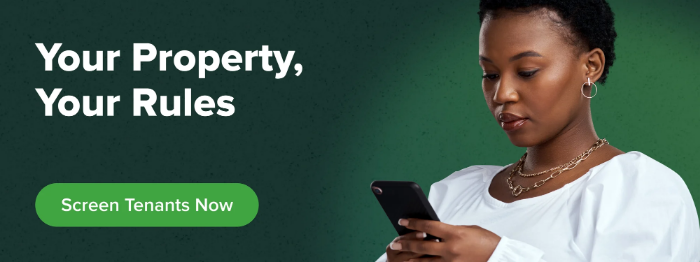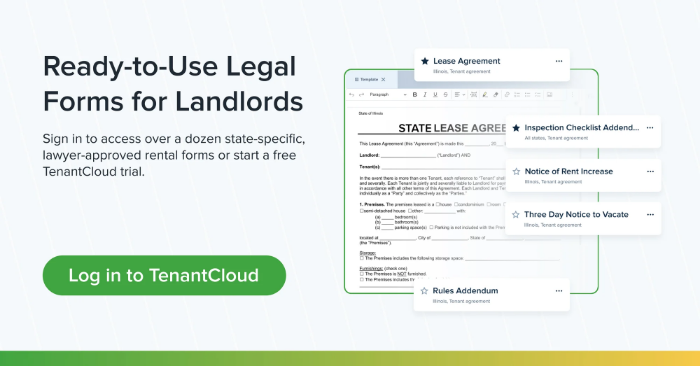When you’re learning the world of property management and property leasing, you’ll want a good understanding of how the lessor/lessee relationship works. Confusion between lessor and lessee agreement can lead to unnecessary stress – and potential legal complications.
In these relationships, one party owns the asset, while the other uses it. But the responsibilities and rights that flow from this arrangement are more complex than most people realize.
Many property owners and tenants enter into these agreements without fully understanding their respective responsibilities. And while you may be able to get by without too much conflict, any disputes over maintenance, payment, and property access rights can quickly spiral.
Let’s take a closer look at everything you need to know about the lessor vs lessee dynamic. We’ll compare both, look at the obligations of each, and build a better understanding of why each role is so important.
First, let’s define the terms – and see why knowing the specifics in these agreements is so important!
What is the Difference Between a Lessor and Lessee?
At the most basic, the lessor vs lessee relationship is all about an exchange: one party provides an asset for use, while the other pays for that privilege.
What Is A Lessor?
The lessor is the property owner or asset owner who grants the right to use their property to another party under a lease agreement. Think of the lessor as the “landlord” in a traditional landlord tenant relationship.
What Is A Lessee?
If the lessor owns or grants access to a property, the lessee is the tenant or party who receives the right to use the leased property. This is usually done in exchange for regular rent payments over a specified period.
But this relationship goes far beyond property rental. When you dig into real estate, you’ll find that everything from equipment leasing to commercial agreements has a part in the relationships.
Typically, the lessor retains legal ownership of the underlying asset while granting usage rights to the lessee. This creates a web of responsibilities and liabilities – as well as benefits – that will need to be managed throughout the lease term.
Lessee vs Lessor: Main Differences at a Glance
| Lessor (Property Owner) | Lessee (Tenant) |
Ownership | Retains legal ownership of the asset | Has usage rights only, no ownership |
Income/Expenses | Receives rent payments as income | Pays rent as an operating expense |
Maintenance | Responsible for major repairs and structural maintenance | Handles day-to-day upkeep and minor repairs |
Liability | May be liable for structural defects and code compliance | Liable for damage beyond normal wear and tear |
Tax Treatment | Can depreciate the asset and deduct maintenance costs | May deduct rent payments as business expense |
Contract Control | Sets lease terms and conditions | Must comply with agreed lease terms |
Legal Framework and Asset Classifications
You may be surprised to learn that there are more than a few legal nuances when it comes to ownership and usage rights of assets.
One key area of the lessee vs lessor relationship is in how assets are handled.
In an operating lease, the lessor typically maintains the leased asset on their balance sheet and it’s their responsibility to claim depreciation benefits. The lessee has a less involved role here – usually recording lease payments as expenses without showing the asset on their financial statements.
However, under modern property management accounting standards, such as ASC 842, lessees are required to recognize most leases on their balance sheets as both an asset (right-of-use) and a corresponding lease liability. This change has significant implications for lessor accounting and how both parties structure their agreements.
For capital lease arrangements (now often referred to as finance leases), the economic substance suggests the lessee has essentially purchased the asset. This can be seen in the lease terms, which can include a bargain purchase option or transfer of ownership at the end of the lease term.
In these cases, the lessee usually takes on more of the ownership risks and rewards, which can include asset depreciation and maintenance responsibilities.
Real Estate Applications
In residential and commercial real estate, property owners must navigate local housing laws, safety regulations, and tenant rights while maintaining their investment.
Tenants will be required to balance their right to quiet enjoyment with their obligations to maintain the leased property in good condition.
Commercial leasing often involves more complicated lease contracts, which usually include gross lease arrangements where the lessor covers most operating expenses, or net leases where the lessee assumes responsibility for taxes, insurance, and maintenance costs.
The relationship also involves ongoing communication and cooperation. Lessors need to have access to their property for inspections and maintenance. Lessees will also require reasonable notice and respect for their privacy before any inspections or maintenance are completed.
To give a better understanding of exactly how these two roles interact, let’s look at the rights and duties of both the lessee and the lessor.
What Are the Rights and Duties of a Lessee?
A lessee is the person or entity who is leasing a property from the lessor. This can include individuals, businesses, or organizations.
A lessee's role involves recognizing the protections you enjoy and the responsibilities you must fulfill throughout your lease term.
What Rights Do Lessee Have?
Quiet Enjoyment and Privacy Rights
As a lessee, did you know that you actually have a fundamental right to use and enjoy your rental property without unreasonable interference from the lessor?
This means your landlord can’t enter your property whenever they please. Law requires that they provide Reasonable notice (typically 24-48 hours, depending on state law) except in genuine emergencies.
This protection actually goes beyond just physical entry to include the freedom from any harassment or behavior that is done to try and force you to vacate the property.
Habitable Living Conditions
All lessees have the right to live or work in property that meets basic habitability standards.
This includes functional plumbing, heating, electrical systems, and the overall structural integrity of the property. The property should also be free of health hazards, pest infestations, and any other potential safety violations.
Should your lessor fail to maintain these conditions, you may have the right to withhold rent and make any necessary repairs and deduct costs yourself. In some cases, you may be able to terminate the lease agreement early.
Anti-Discrimination Protections
Federal fair housing laws protect lessees from any kind of housing discrimination based on race, color, religion, sex, national origin, disability, and familial status – at the beginning of the lease and throughout the entire lease term.
Many states extend these protections to include sexual orientation, gender identity, and source of income.
Security Deposit Rights
Most states provide specific protections regarding security deposits. These can include the right to receive an itemized list of deductions as well as the prompt return of unused deposits (typically within 30 days).
What are the Duties of a Lessee?
Rent Payment and Financial Obligations
As a lessee, your most important duty is to pay rent according to the terms of a standard residential lease agreement.
This means making timely, full payments by the specified due date, and following the lessor’s preferred payment methods. You’ll also need to pay any agreed-upon fees such as pet deposits or utility charges. Late or partial payments can trigger penalties and potentially lead to eviction proceedings.
Property Maintenance and Care
While you have the right to a habitable space, you must also take responsibility for maintaining the property in a “reasonable condition.”
This upkeep can include day-to-day upkeep like keeping the property clean and handling minor repairs such as replacing light bulbs and changing air filters.
You’ll also be required to take reasonable steps to prevent damage from weather, pests, and potential security breaches.
Lease Compliance and Communication
The lessee must also adhere to all lease provisions – including use restrictions, occupancy limits, and pet policies. Many leases will also include alteration restrictions.
You also have the responsibility to quickly report any damage or safety hazards to your lessor. This includes maintaining current contact information and allowing for reasonable access for inspections and maintenance (with proper notice!)
End-of-Lease Responsibilities
As your lease term concludes, you’ll be required to return the property in good condition (accounting for normal wear and tear) to the lessor.
You’ll also need to meet any specified cleaning requirements that are laid out in the lease, as well as provide all keys and access devices to the lessor. You may need to supply a forwarding address for security deposit return.
What Are the Rights and Duties of a Lessor?
As a property owner or manager, you know there’s a balance between keeping your lessee happy and paying rent, and making sure the property stays habitable and profitable for future use.
That’s why knowing the key rights and duties of a lessor can help you manage any potential issues that could come up during the relationship.
What are the Rights of a Lessor?
Rent Collection and Financial Rights
Lessors have the right to receive rent payments per the lease agreement terms. This includes the ability to enforce payment deadlines and assess any late fees as outlined in the lease contract.
A lessor can also insist on full payment and pursue collections through legal channels should payments not arrive on time.
Most importantly, lessors have the right to increase rent at lease renewal – but these increases are subject to local rent control laws and proper notice requirements.
Property Access and Control Rights
While protecting tenant privacy, lessors still retain key access rights. This means lessors can undertake routine property inspections to check out the condition of the property and make sure lease compliance is in check.
You also have the right to emergency access during genuine safety hazards or urgent situations, as well as the right to enter for necessary maintenance and repairs. You also have showing rights for properties that are being sold or re-rented (with appropriate notice).
Lease Enforcement and Legal Remedies
Property owners have the right to specify how their property may be used and set reasonable occupancy limits. This includes the right to establish pet and subletting policies and propose any lease modifications for renewals.
Should any violations occur, lessors have the right to initiate eviction proceedings for cause, as well as seek to recover costs for property damage beyond normal wear and tear.
What are the Duties of a Lessor?
Habitability and Safety Obligations
One of the most important duties as a lessor is to provide and maintain a safe, habitable place to live.
This means making sure the property is in a clean, functional condition at the outset of the lease term, and being willing to perform ongoing maintenance as needed. These could include major repairs and any structural maintenance or replacements.
Lessors must also ensure that the property meets local building codes and safety regulations, and that health standards are maintained at all times. This may require lessors to invest in necessary upgrades and repairs to bring the property up to code.
Legal and Administrative Compliance
Lessors will also need to manage the legal requirements of owning and leasing a property. These usually include fair housing compliance during tenant screening and property management, as well as providing appropriate notice before entering tenant premises (typically 24-48 hours).
You may need to obtain the necessary business licenses and rental property registrations before you put a place up for rent. Using lease forms that comply with local laws is one of the best ways to make sure you avoid any legal recourse.
Financial Management and Tenant Relations
Property ownership also involves managing all tenant security deposits – which includes hholding funds in separate accounts where required and providing itemized deductions within specified timeframes. You’ll want to manage your tax implications of rental income and expenses, and maintaining appropriate property insurance.
Effective real estate portfolio management involves maintaining consistent communication with tenants and providing transparent processes for policies and procedures at all times.
Tips for Keeping Everyone On The Same Page
Knowing the differences between the lessor vs lessee role is key to making sure the process is smooth and effective for everyone involved. When lessors aren’t up to date on the terms and conditions of the lease agreement, it can lead to misunderstandings and conflicts with tenants. On the other hand, lessees should be knowledgeable about their rights and responsibilities as renters, including proper care and maintenance of the property.
The key to effective lease management? Recognizing that everyone involved has rights and duties in the relationship. Property management requires keeping everyone’s competing interests in mind while managing the various legal requirements and financial considerations.
Most importantly, clear and consistent communication creates a foundation for any successful lease agreement. Keep everyone aware and updated of any changes to the terms and conditions, and make sure you are quick to respond to any needs.
TenantCloud Is Your Lessee vs. Lessor Partner
Whether you're managing a single rental property or overseeing a large real estate portfolio, TenantCloud's comprehensive property management platform helps you navigate these relationships effectively.
From lease agreement templates to maintenance request systems, digital tools can help both lessors and lessees fulfill their obligations while protecting their interests throughout the lease term.
Want to learn more about how to build and maintain a profitable relationship between lessees and lessors? Visit TenantCloud online and check out our resources and expert tips!








